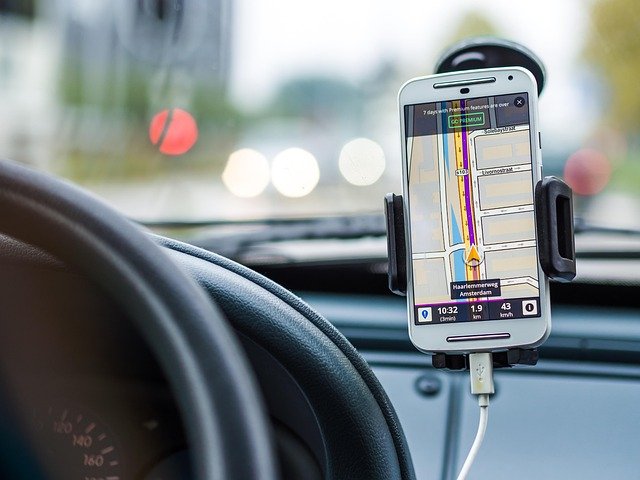GPS Devices: Your Complete Guide to Modern Tracking Solutions
Mini GPS trackers provide a portable and discreet solution for location monitoring. Commonly used to track vehicles, pets, personal belongings, or even loved ones, these compact devices offer real-time location updates. They can support peace of mind and help improve everyday safety and organization.

What Makes a GPS Tracker Effective for Daily Use?
An effective GPS tracker combines accurate positioning with reliable connectivity. Most modern devices use a combination of GPS satellites and cellular networks to provide precise location data. The best trackers offer real-time updates, long battery life, and user-friendly mobile apps. Key features include geofencing capabilities, which alert you when the tracker enters or leaves designated areas, and historical tracking data that shows movement patterns over time. Weather resistance and compact design are also crucial factors that determine a tracker’s practical effectiveness in real-world applications.
How Do Mini GPS Trackers Compare to Standard Devices?
Mini GPS trackers prioritize portability and discretion without sacrificing essential functionality. These compact devices typically measure less than two inches and can easily attach to keychains, fit inside bags, or be concealed in vehicles. While standard GPS devices might offer longer battery life and additional features, mini trackers excel in situations requiring stealth or minimal visibility. The trade-off usually involves battery capacity and range of advanced features, but technological improvements have significantly reduced these gaps in recent years.
Which Tracking Tools Work Best for Vehicle Monitoring?
Vehicle tracking requires robust GPS devices that can withstand vibrations, temperature changes, and potential tampering. Professional-grade tracking tools for vehicles often include features like engine diagnostics, driving behavior analysis, and theft recovery capabilities. Many devices connect directly to the vehicle’s OBD-II port, providing both power and additional data streams. For personal vehicle tracking, magnetic mount trackers offer easy installation without wiring, while commercial fleets typically prefer hardwired solutions with comprehensive reporting capabilities.
What Are the Legal Considerations for GPS Tracking?
GPS tracking legality varies by state and application, but general principles apply nationwide. You can legally track vehicles you own, pets, and minor children without consent. However, tracking adults without their knowledge may violate privacy laws, especially in workplace or personal relationship contexts. Many states require disclosure when tracking employees’ vehicles, and tracking someone else’s property without permission constitutes illegal surveillance. Always research local regulations and consider ethical implications before implementing tracking solutions.
How Do GPS Devices Perform in Different Geographic Regions?
GPS performance can vary significantly across different geographic areas in the United States. Urban environments with tall buildings may experience signal interference, while rural areas might have limited cellular coverage affecting real-time updates. Mountain regions and dense forests can block satellite signals, reducing accuracy. However, modern GPS devices often incorporate multiple positioning systems, including GLONASS and Galileo satellites, improving reliability in challenging environments. Coastal areas generally provide excellent GPS performance due to clear sky visibility and strong cellular infrastructure.
What Are Current GPS Tracker Pricing and Popular Options?
GPS tracker costs vary considerably based on features, build quality, and service plans. Basic mini GPS trackers start around $25-50, while professional-grade devices can cost $100-300 or more. Monthly service fees typically range from $10-30, depending on data usage and features. Here’s a comparison of popular GPS tracking solutions:
| Product Type | Provider | Cost Estimation | Key Features |
|---|---|---|---|
| Basic Mini Tracker | Tile Mate | $25-35 + No monthly fee | Bluetooth tracking, community network |
| Cellular GPS Tracker | Spytec GL300 | $40-60 + $25/month | Real-time tracking, geofencing |
| Vehicle OBD Tracker | Bouncie | $70-90 + $20/month | Vehicle diagnostics, driving scores |
| Professional Fleet | Verizon Connect | $40-70/month per vehicle | Advanced reporting, maintenance alerts |
Prices, rates, or cost estimates mentioned in this article are based on the latest available information but may change over time. Independent research is advised before making financial decisions.
Conclusion
GPS devices and mini GPS trackers have become essential tools for modern life, offering practical solutions for vehicle monitoring, asset protection, and personal safety. The variety of available tracking tools ensures options for every need and budget, from simple Bluetooth trackers to sophisticated fleet management systems. Understanding the capabilities, limitations, and legal considerations of GPS technology helps you make informed decisions about implementing tracking solutions. As technology continues advancing, these devices will likely become even more accurate, affordable, and feature-rich, making location tracking an increasingly valuable part of our connected world.




